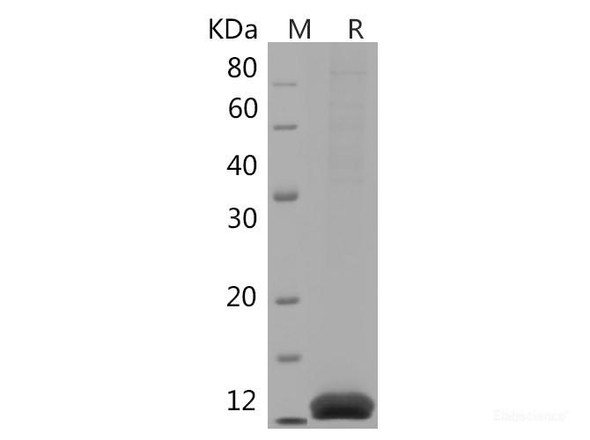| Sequence: | Leu 19-Pro 415 |
| Accession: | P05120 |
| Storage: | Generally, lyophilized proteins are stable for up to 12 months when stored at -20 to -80°C. Reconstituted protein solution can be stored at 4-8°C for 2-7 days. Aliquots of reconstituted samples are stable at < -20°C for 3 months. |
| Shipping: | This product is provided as lyophilized powder which is shipped with ice packs. |
| Formulation: | Lyophilized from sterile PBS, pH 7.4. Normally 5 % - 8 % trehalose, mannitol and 0.01% Tween80 are added as protectants before lyophilization. Please refer to the specific buffer information in the printed manual. |
| Reconstitution: | Please refer to the printed manual for detailed information. |
| Background: | Serpins are the largest and most diverse family of serine protease inhibitors which are involved in a number of fundamental biological processes such as blood coagulation, complement activation, fibrinolysis, angiogenesis, inflammation and tumor suppression and are expressed in a cell-specific manner. SerpinB2, also known as Plasminogen activator inhibitor 2, Placental plasminogen activator inhibitor, Monocyte Arg-serpin, Urokinase inhibitor and PAI2, is a cytoplasm protein which belongs to the serpin family and Ov-serpin subfamily. SerpinB2 is a major product of activated monocytes and macrophages and is substantially induced during most inflammatory processes. Distinct from its widely described extracellular role as an inhibitor of urokinase plasminogen activator. SerpinB2 has been shown to have an intracellular role as a retinoblastoma protein (Rb)-binding protein that inhibits Rb degradation. SerpinB2 is widely described as an inhibitor of urokinase plasminogen activator. SerpinB2 inhibits urokinase-type plasminogen activator. The monocyte derived SerpinB2 is distinct from the endothelial cell-derived PAI-1. SerpinB2 is a potentially important inducible host factor that significantly promotes HIV-1 replication. |






